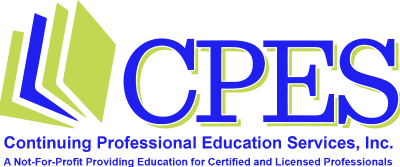David Haymes is the new Assistant Commissioner of the Contaminated Site Remediation & Redevelopment Program and will join us to discuss his program, his goals and his vision of Site Remediation.
New Jersey’s Next Chapter in Site Remediation: Key Take-Aways from CPES’ April “Hot Topic” with Assistant Commissioner David Haymes
On April 6 CPES welcomed David Haymes, PG, Assistant Commissioner for the NJDEP’s Contaminated Site Remediation & Redevelopment Program (CSRRP), for a 60-minute status report and Q&A. More than 100 environmental professionals logged in; below is an at-a-glance recap of the issues that generated the most discussion.
1. Who’s Who inside CSRRP
Haymes walked through the updated organisational chart and made it clear that DEP has re-aligned staff to close gaps created by retirements:
| Division | Key Leader(s) | What They Handle |
|---|---|---|
| Division of Remediation Management | Director: Gwen Zervas Elements: Remediation Review (Lynne Mitchell); Response Oversight (Atwood Davis & Mike Gaudio); Publicly Funded Projects | Case oversight, inspections, permit reviews, publicly funded clean-ups |
| Division of Enforcement, Technical & Financial Support | Acting Director: Frank DeFeo | Enforcement, IT, technical guidance, financial assurance, Spill Fund billing & cost recovery |
Staffing snapshot. DEP’s remediation team peaked at ~385 people (2010 era) and is now ~340. Haymes acknowledged the “brain-drain” caused by a wave of retirements and said DEP is accelerating promotions and compliance-assistance hiring to rebuild capacity.
2. Top Program Priorities for 2024–25
- Public Health First. Ensure receptors are protected—clean water, clean indoor air—before anything else.
- Permitting Throughput. Cut administrative “glitches” that delay remedial-action permit (RAP) approvals; financial-assurance reviews have been reassigned to speed decisions.
- Independent Professional Judgment (IPJ). DEP will re-emphasise communication over “hand-holding.” Reviewers should ask only for data that fill genuine gaps—and LSRPs must document the reasoning behind every key choice.
- Brownfield Redevelopment + EJ. Expect more DEP support for projects that revitalize over-burdened communities. The forthcoming Environmental Justice rule should not slow RAP issuance—remediation permits are exempt because they remove, not add, pollution.
- Rule Updates. A proposal amending the Technical Requirements for Site Remediation (“Tech Regs 2.0”) is targeted for late-spring / early-summer publication. A final stakeholder meeting will preview the changes (definitions, permit streamlining, PFAS soil standards).
3. Permits & IPJ – What DEP Wants to See
- Ask early. Technical Consultation Meetings (TCMs) remain the fastest way to confirm remedial approaches before the report is filed.
- Explain deviations. If you apply a toolbox method—polygons, averaging, alternative fill—spell out why it meets protectiveness.
- Version control matters. Reports are evaluated against the guidance in place when the document is submitted. However, biennial certifications must consider current standards.

4. Emerging Contaminants & NRD
- PFAS Soil Numbers. Interim direct-contact standards (Oct 2022) will be folded into rule-making; GenX interim GW criteria are on deck.
- 1,4-Dioxane. DEP filed suit (March 2023) against former manufacturers; groundwater cleanup standards already apply.
- Natural Resource Damages. DEP is not retreating from NRD claims—expect continued litigation and valuation for new contaminants.
5. Environmental Justice Rule – What It Means for LSRPs
- Remedial permits are exempt from the new EJ pre-application community review because they abate existing pollution.
- Upshot for projects in Over-Burdened Communities: faster clean-up approvals plus stronger pressure to finish RI/RA work so stalled lots can be redeveloped.
CPES Action Step
Stay ahead of rule changes, enforcement trends and funding updates—join CPES Hot Topics every month and make your voice part of the conversation shaping New Jersey’s remediation landscape.
